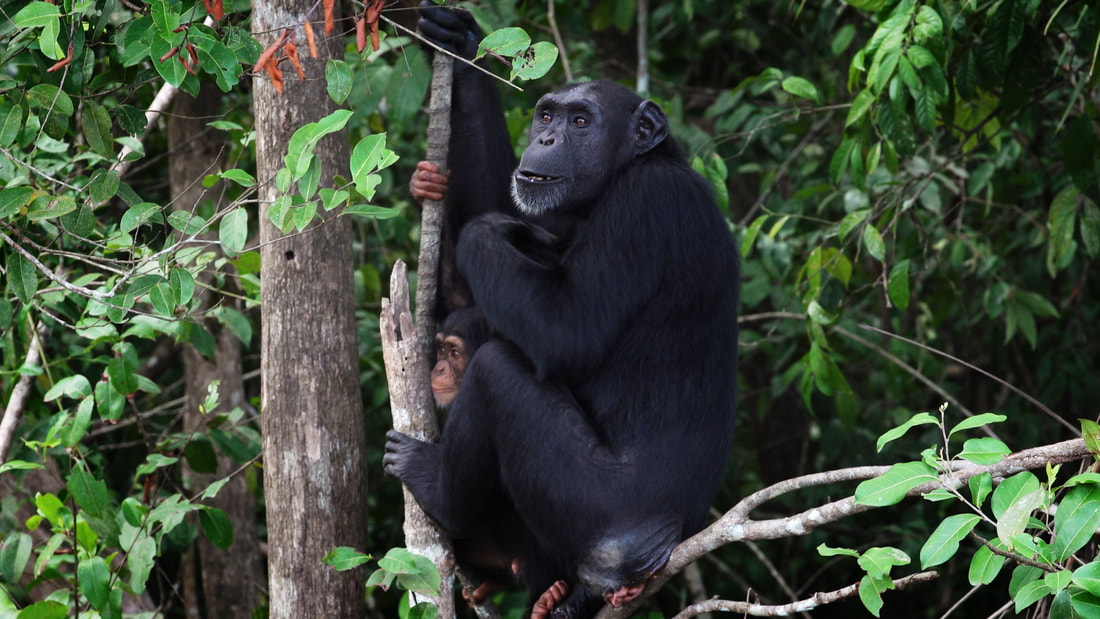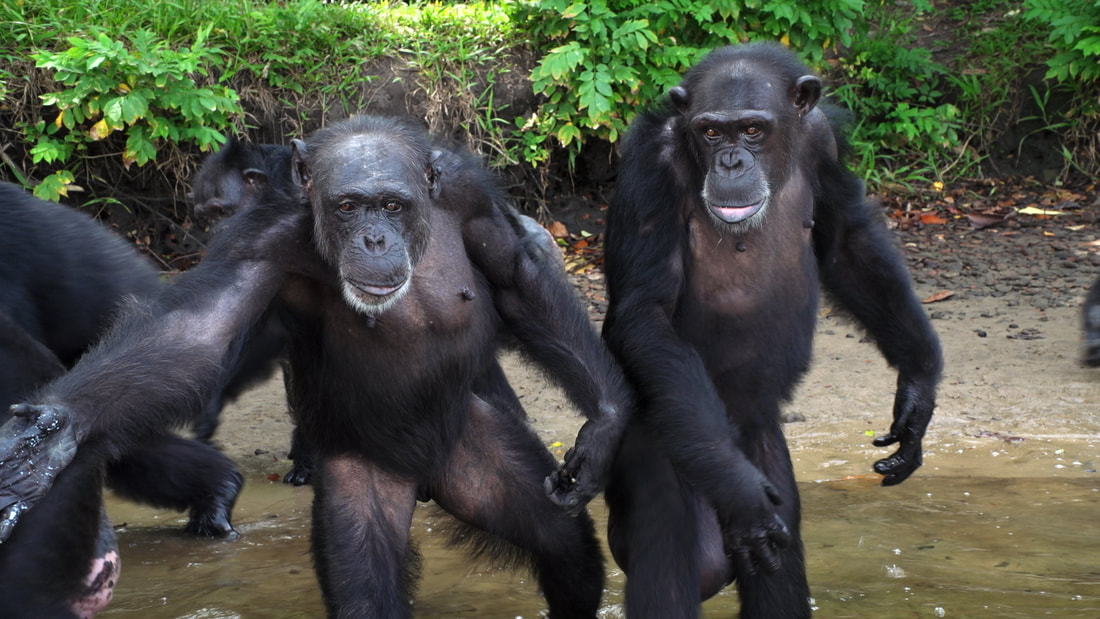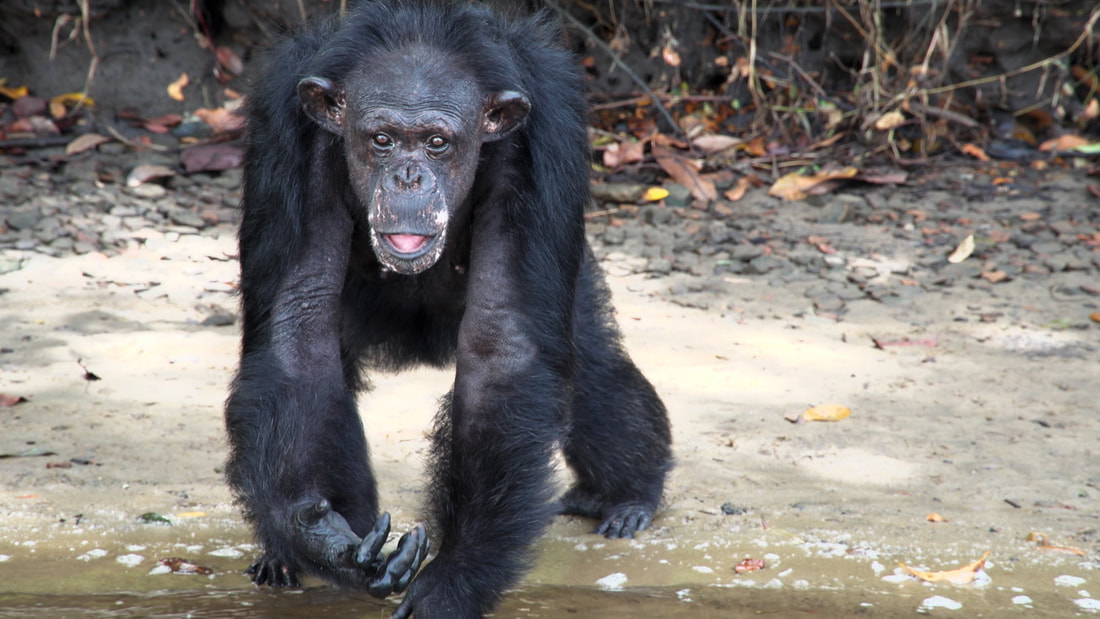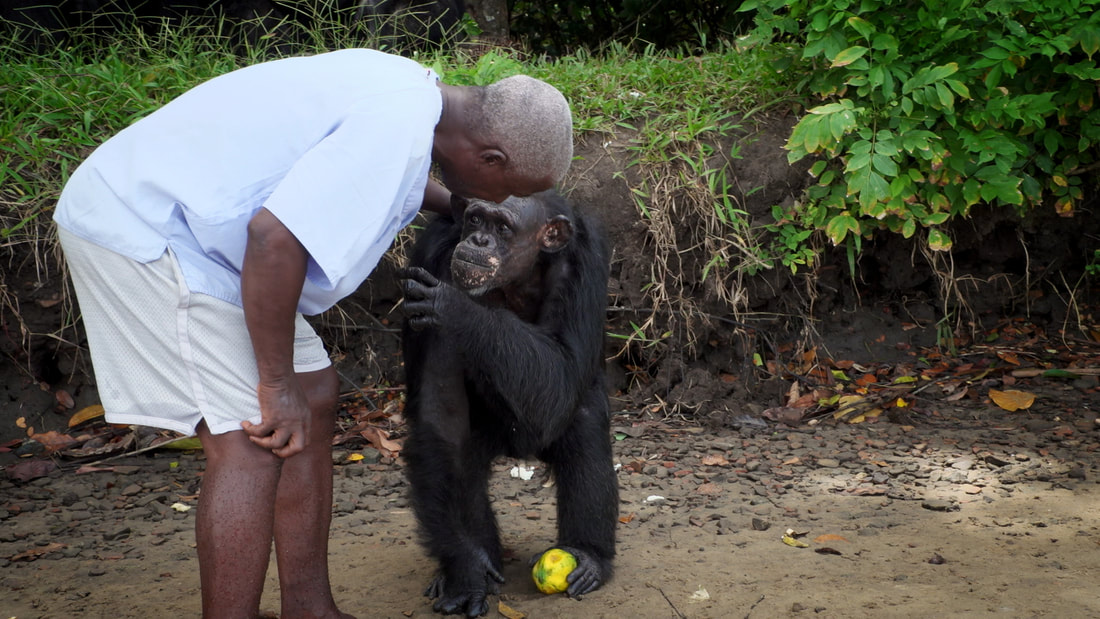|
We reached out to our Jackson Wild Media Awards filmmakers to ask them five questions about the experience of making their films.
What inspired this story? Producer and Director Lindsey Parietti: I was looking for a story for my University of the West of England wildlife filmmaking master’s program that would draw attention to an ongoing environmental issue in need of an urgent solution. I heard about the “blood chimps” offhand and was intrigued. As I started researching, the deeper I dug the more unexpected layers I uncovered. It was both fascinating and shocking and I knew I wanted to tell this story. Describe some of the challenges faced while making this film/program? LP: I had a very short filming window (only 2.5 days on location) and conditions in Liberia were very hot and humid so the cameras played up. We were filming the chimpanzees on the islands from a small boat so that was challenging as well. Something always goes awry on location but I enjoy the creative challenge of making it all work. How do you approach storytelling? LP: As a journalist I naturally want to examine things that fascinate me or grab my attention and that feel relevant, current and exciting. I try to use whatever platform I have to highlight stories and causes that aren’t being covered but deserve to be told. It’s a process of discovery and I try to approach it without foregone conclusions of what I might find. Once I’m crafting the story I like to keep it clear and authentic and try to be true to the narrative and characters. The goal is to capture their essence without overworking the final product. What impact do you hope this film/program will have? LP: I hope the film prompts us to consider our relationship with animals and the natural world. For a long time, we’ve taken power over other living things at our disposal and treated them as if they were disposable commodities. There are a lot of people working to change this and I’d like to play a part in telling their stories. I set out to make Blood Island as a campaign film that would draw attention to the chimps’ plight. However during the edit, the New York Blood Center reached a settlement to provide some money for the care of their former research chimpanzees. While this resolved some of the immediate problem, there are still issues regarding the future of these chimps including that they’ve reproduced on the islands, creating more chimps that will live for 50-60 years and need to be cared for. Practically I hope the film gives people a window into the issue and if they feel compelled, they can investigate further or donate toward the chimps’ care. You can find more information or get in touch with me on the film’s Facebook page: https://www.facebook.com/BloodIslandfilm/ What next? LP: I’ve recently wrapped a related tv series and am working on new ideas. Questions for Specific Categories: Impact: How can audience members take action to help the cause or issue featured in this film? LP: There are two organizations they can support: The Humane Society is currently looking after the retired lab chimps and Liberia Chimpanzee Rescue and Protection is rescuing orphaned chimps and trying to protect the critically endangered Western Chimpanzee in Liberia. If you feel compelled by the film and want more information or to get in touch I would love to hear from you on the film Facebook page: https://www.facebook.com/BloodIslandfilm/ Student and Emerging Science Filmmaker: What inspired you to tell this particular story? What did you learn during the making of this film? Any surprises? LP: I was looking for a story for my wildlife filmmaking master’s programme that would draw attention to an ongoing environmental issue in need of an urgent solution. I heard about the “blood chimps” offhand and was intrigued. As I started researching, the deeper I dug the more unexpected layers I uncovered. It was both fascinating and shocking and I immediately knew I wanted to tell this story. Any project I take on feels like one big learning process, which is why I love journalism and filmmaking. I learned so much about the chimpanzees and got to meet the amazing people involved in their cause. The University of the West of England masters programme was also a great opportunity to develop craft skills since we got to do everything ourselves from development to filming to post-production, including editing, color grading and building the soundscape. I had previously worked as a video journalist, but the timescale and everything that went into making something more cinematic was so different that I learned a lot and enjoyed the new challenge.
0 Comments
Leave a Reply. |
Archives
March 2024
Categories
All
|
Contact UsJackson Wild
240 S. Glenwood, Suite 102 PO Box 3940 Jackson, WY 83001 307-200-3286 info@jacksonwild.org |





 RSS Feed
RSS Feed